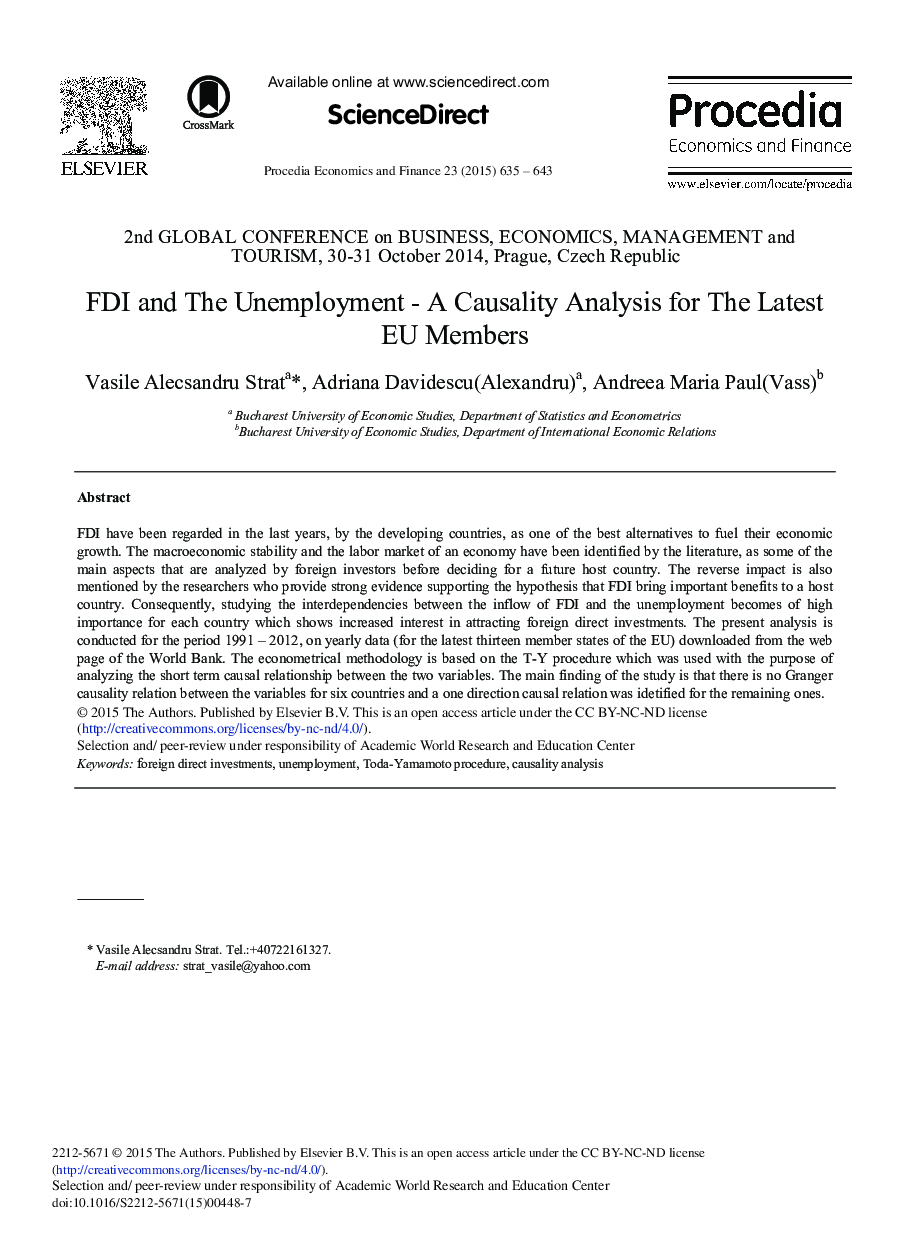| Article ID | Journal | Published Year | Pages | File Type |
|---|---|---|---|---|
| 981458 | Procedia Economics and Finance | 2015 | 9 Pages |
FDI have been regarded in the last years, by the developing countries, as one of the best alternatives to fuel their economic growth. The macroeconomic stability and the labor market of an economy have been identified by the literature, as some of the main aspects that are analyzed by foreign investors before deciding for a future host country. The reverse impact is also mentioned by the researchers who provide strong evidence supporting the hypothesis that FDI bring important benefits to a host country. Consequently, studying the interdependencies between the inflow of FDI and the unemployment becomes of high importance for each country which shows increased interest in attracting foreign direct investments. The present analysis is conducted for the period 1991 – 2012, on yearly data (for the latest thirteen member states of the EU) downloaded from the web page of the World Bank. The econometrical methodology is based on the T-Y procedure which was used with the purpose of analyzing the short term causal relationship between the two variables. The main finding of the study is that there is no Granger causality relation between the variables for six countries and a one direction causal relation was idetified for the remaining ones.
